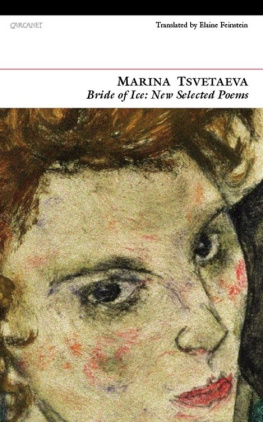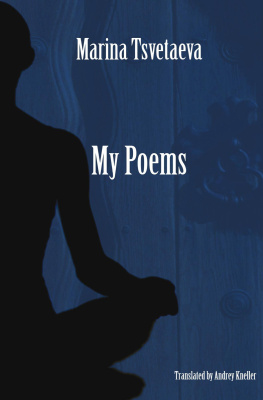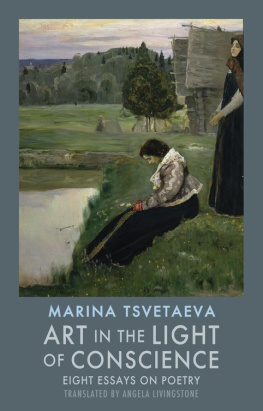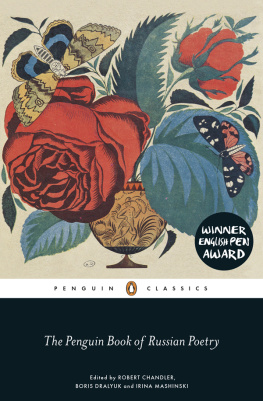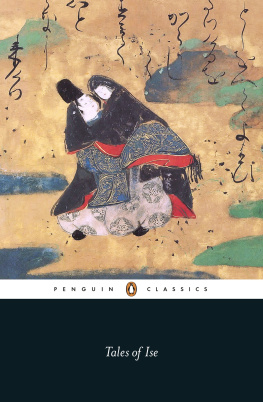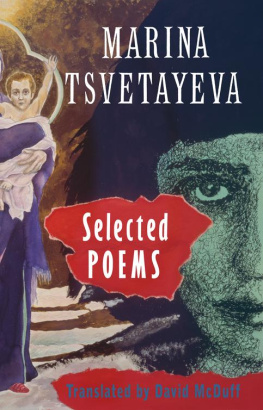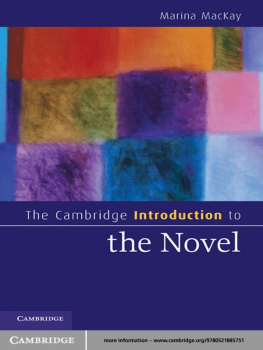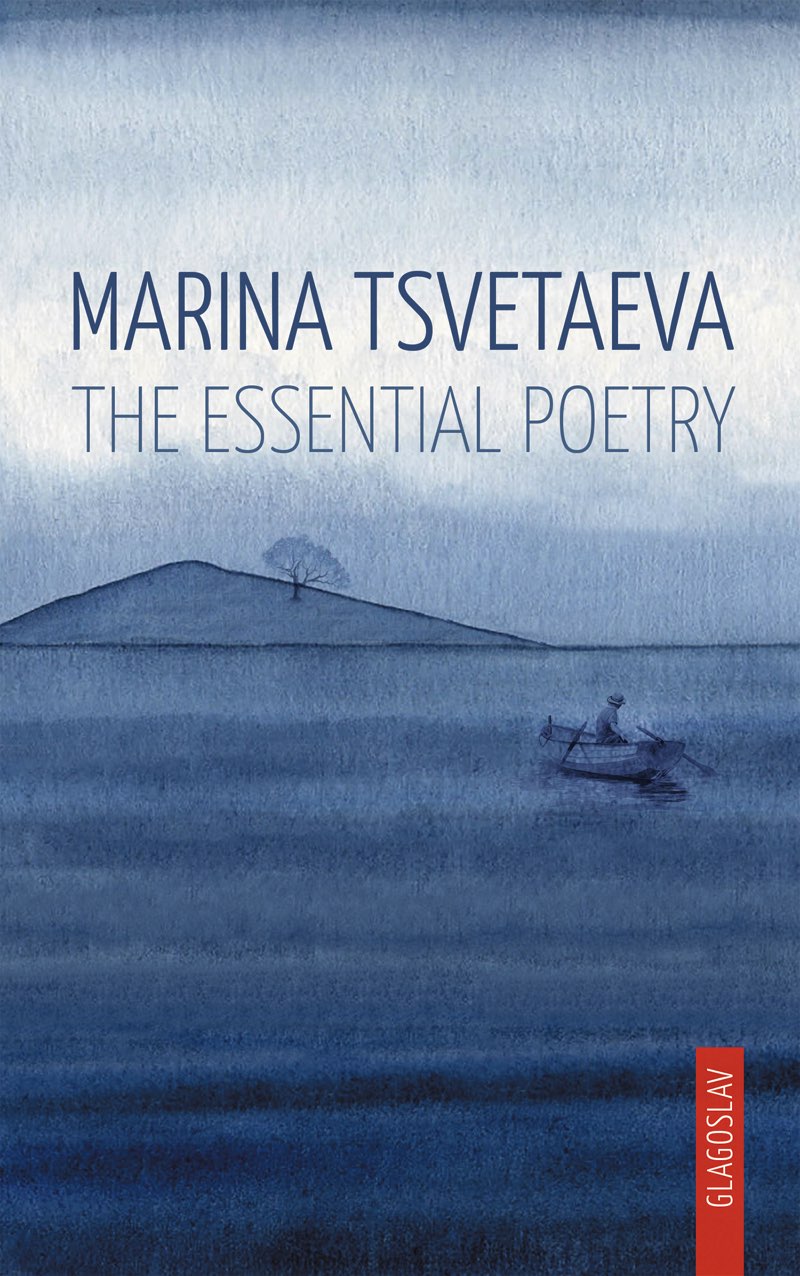Book created by Max Mendor 2015, Glagoslav, Nederland Glagoslav Publications Ltd 88-90 Hatton Garden EC1N 8PN London United Kingdom www.glagoslav.com ISBN: 9781784379605 This book is in copyright. No part of this publication may be reproduced, stored in a retrieval system or transmitted in any form or by any means without the prior permission in writing of the publisher, nor be otherwise circulated in any form of binding or cover other than that in which it is published without a similar condition, including this condition, being imposed on the subsequent purchaser.
Acknowledgments
T here is an hour for those words first appeared in
Confrontation No. 48-49 (Spring/Summer 1992).
The following translations appeared initially in Marina Tsvetaeva After Russia Trans. Michael M. Naydan with Slava Yastremski (Ann Arbor: Ardis Publishers, 1992): Nocturnal whispers: a hand, The Balcony, Someone rides to mortal victory..., With what inspiration, There are ashes of treasures, Ophelia to Hamlet, Ophelia in Defense of the Queen, Wires, In Praise of Time, Dialogue of Hamlet with his Conscience, A Minute, The Prague Knight, Nocturnal Places, An Attempt at Jealousy, and A yataghan? A fire?. Most of the translations published in the After Russia collection have been revised for this edition. Extra special thanks to Tess Gallagher for her insightful suggestions on the final version of this manuscript that have served to fine tune these translations and also for her kindness in providing her poets guest introduction to the volume.
Translating the fine excess of spirit in Marina Tsvetaeva
M arina Tsvetaeva holds a very special place in my memory of the search for women writers who might offer examples of what to admire and to which we might aspire.
The early 1970s female models for young women poets like myself, as we began to form our poetic voices, were either hermetic such as Emily Dickinsonwho was shuttered away, with her bounty hidden in mason jars because her genius had been thwarted by male publishing predilectionsor at the other end of the scale, the explosive cauldron of pent up righteous anger and truth-telling of Sylvia Plath and Ann Sextonfor which one was grateful, while feeling guiltily that one had perhaps been ritually saved by their suicides from similar psychic trauma. When translations by Stanley Kunitz and others of Tsvetaevas contemporary luminary Anna Akmatova began to be published, I consequently felt myself drinking deeply of the latters gravitas, a kind of dignity and regal purity, a seemingly uncrushable spirit, a poet who, while representing the weight of oppression of those times under Stalin, had managed to become a fortress unto herself, yet who would come to embody that time. But Marina Tsvetaeva was another equally powerful and compelling voice emerging from Russia. I truly believe that Kunitz (an excellent translator of Akhmatova and, who eventually became my mentor after I wrote thanking him for those poems) was really thinking of Tsvetaevas influence on me when he referred to my work as possessing a fine excess of spirit. Akhmatova held her truths close to the bone so we were able to suck the marrow of those cold Russian realities, but Tsvetaevas spirit could not articulate or survive without soaring. In my early readings of Tsvetaeva it is precisely this excess, this sense that life is at once abundant and dire that attracted me, and further, that at lifes bleakest moments, one might be lifted by love and language into something surpassing the merely mortal.
These new rangier, emotionally freighted translations of Tsvetaeva by Michael Naydan and Slava Yastremski, the latter a native Russian speaker and professor at Bucknell University, and the former a professor and translator at Penn State University, who have translated Russian prose and poetry for the past forty years, make these qualities much more strongly available to me. Across the translations of Akhmatova there still remains only one Akhmatova for me. But with Tsvetaeva there exist many Tsvetaevas, and these further inflections are worth discovering in this considerable accomplishment. The truth of this multiplicity of Tsvetaevas was brought strongly home to me when I was fortunate enough to attend a marvelous program presented in Dublin of Tsvetaevas work translated into Irish. The translator herself, Dairena N Chinnide, gave an unforgettable voicing of these poems, against the excellent English translations read commandingly by their creator Elaine Feinstein. Next to the English emerged this Irish spitfire Tsvetaeva, who was guttural and utterly tenacious, imperious even.
Her language in Irish, a spiritual spiraling to a pinnacle, carried us into the vastness of Tvetaevas imagination, which is always a feeling of going toward something as much as it is a rendering of what one could actually possess. These translations offered by Naydan and Yastremski seem to closely accompany the Tsvetaeva who really wants to love like the gods, not like a mere human being. She changes the entire scale of our expectation of how one loves and whom one loves. For her personally, this became a recipe for loss since it was not easy to find lovers who could soar with her. And of course those heights could not be maintained, even when she chose poets as love mates whether actualized (such as her early female lover Sophia Parnok) or kindred in spirit (Blok, Rilke, Akhmatova) or somewhere in between (Mandelstam and Pasternak). What I became more aware of while reading these translations is how Tsvetaeva uses her poetry to regain her emotional balance.
Instead of cutting a lover off for leaving her, or becoming the victim, she turns the tables on them and lets them feel what they have lost in abandoning their love of her. This was a newly articulated paradigm for women poets all over the world trying to do more than lick wounds in the stance of a victim. In placing Tsvetaevas appeal to American contemporary poetry of the present and myself in the 1970s, I believe she has been the more dangerous and unwieldy model when compared to Akhmatova, who became so important to us as a sign of stature under political and emotional duress, attracting translators such as Jane Kenyon whose own work was greatly emboldened by Akhmatova. For all the possible range of voices open to women poets, what still claims central respect in the American canon and critical arena, truncated as that apparatus may be, seems fairly reeled inselves in chiarascuroemotional cargoes held close to the chest. We seem to have a kind of cool hand Luke censor built into both female and male engendered poetrybut especially operative toward poetry written by women. When one reads Tsvetaeva in Naydan and Yastremksis translations, I find something restored to her that I had deeply sensed, yet could not quite experience: a rough grasping toward language that is willing for the inelegant if it serves the passion of her impulse in the moment.


